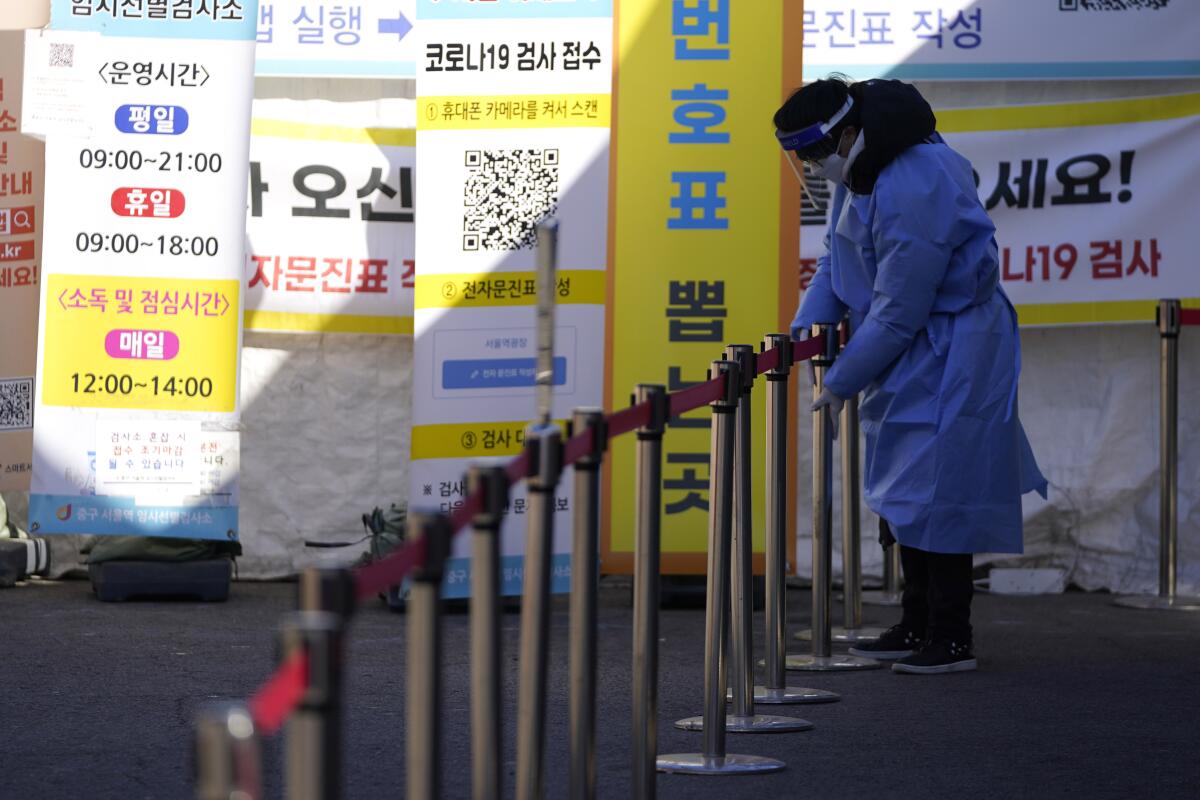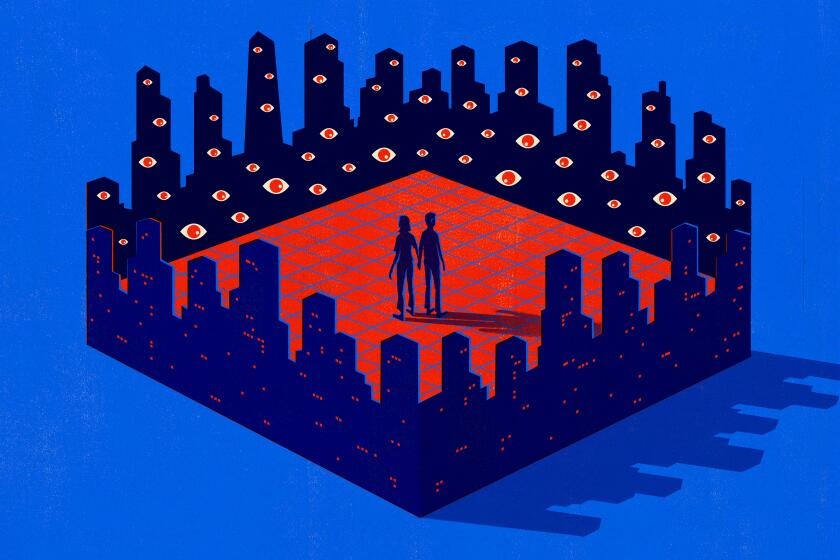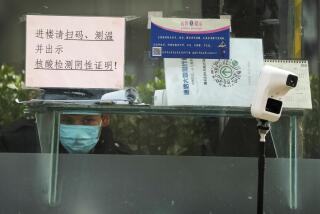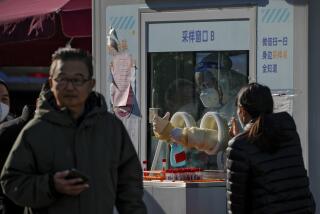South Korea to slightly ease social distancing but warns of an Omicron surge

SEOUL — South Korea will slightly ease its coronavirus gathering restrictions starting next week, but continue to maintain a 9p.m. curfew for restaurants and entertainment venues, as it braces for a possible surge in infections driven by the contagious Omicron variant.
Health Minister Kwon Deok-cheol said Friday the four-person limit on private social gatherings among fully vaccinated people will be raised to six for at least three weeks starting Monday.
While officials have acknowledged frustration and fatigue with prolonged virus restrictions and the harm to small businesses, they say they couldn’t afford to loosen social distancing rules further when the country may face a huge wave of cases in coming weeks as Omicron continues to spread.
About 12% of South Korea’s infections reported last week were of the Omicron variant, and officials say it could become the country’s dominant strain in one or two weeks. Kwon raised concern that the spread could be accelerated by the Lunar New Year holiday break at the end of this month, when millions of people travel across the country to meet relatives.
Kwon pleaded with people to stay home during the Jan. 29-Feb. 2 holidays and especially not visit aging relatives who aren’t fully vaccinated. Visits to nursing homes will be banned during the period, and officials will limit capacity on trains and ferries to discourage travel.
“Thanks to active cooperation by our people, our medical response has significantly improved … but the increasing spread of Omicron has us facing a new danger,” Kwon said. The Korea Disease Control and Prevention Agency said the country may see its daily infections jump to levels around 30,000 by the end of February if it substantially loosens social distancing.
Today’s young are born into a digitally interconnected reality where big data and artificial intelligence will shape everyday existence long before the children are old enough to protect their privacy or give consent.
Restaurants, coffee shops, gyms and karaoke venues will continue to be required to close at 9 p.m. Adults are asked to verify their vaccination status through apps to visit restaurants, movie theaters, museums, shopping malls and other indoor places. Most of these locations admit only fully vaccinated adults, but restaurants and coffee shops are allowed to accept one adult in each group who isn’t fully vaccinated or vaccinated at all.
Experts say Omicron, which has already become dominant in many countries, spreads more easily than other coronavirus strains. It also more easily infects those who have been vaccinated or had previously been infected by prior versions of the virus. However, early studies show that Omicron is less likely to cause severe illness than the Delta variant, and that vaccination and booster shots still offer strong protection from serious illness, hospitalization and death.
South Korea on Friday reported 4,542 new cases, including a record 409 linked to international arrivals. The daily count exceeded 7,000 several times last month during a Delta-driven surge that caused a spike in hospitalizations and deaths, but transmissions have slowed in recent weeks as officials enforced tightened social distancing.
More to Read
Sign up for Essential California
The most important California stories and recommendations in your inbox every morning.
You may occasionally receive promotional content from the Los Angeles Times.











